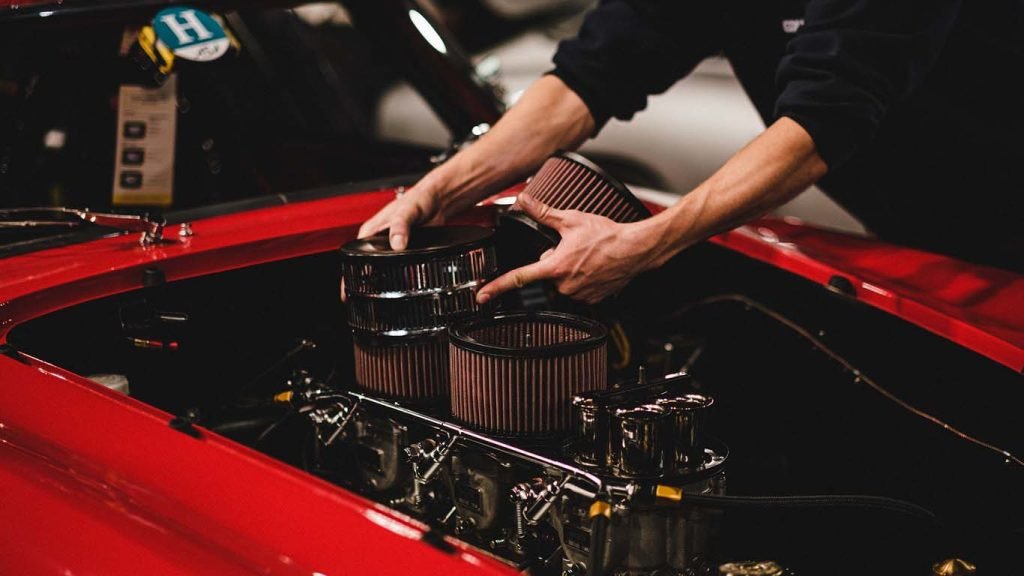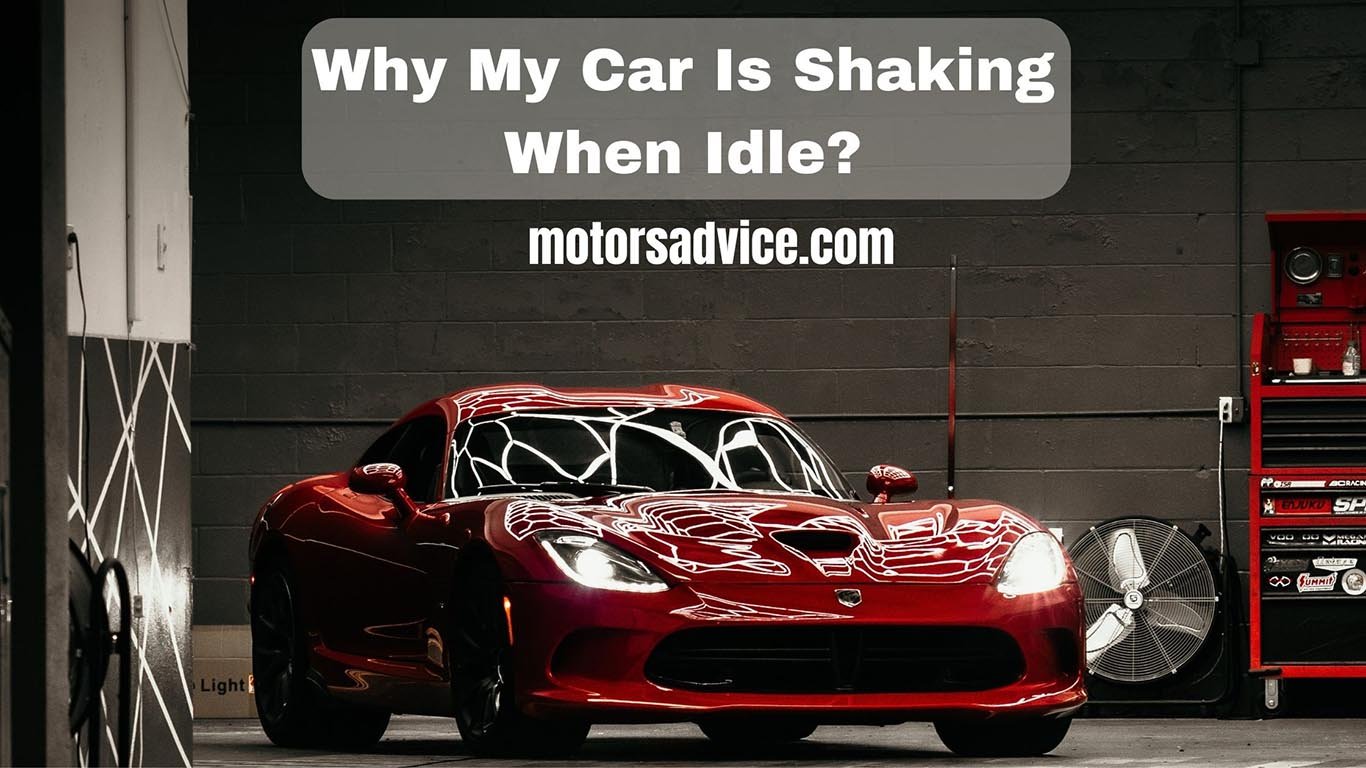A car’s motor experiences idle shaking within usual parameters, attributed to elements like transmission gears and crankshaft rotation, inducing subtle oscillations during motion. Yet, excessive vibration at idle signifies engine issues. Below are the primary causes of car shaking when idle, helping you gauge when to visit a service center.
Reasons for car shaking when idle and possible solutions
Spark plugs are worn:
A common reason for a car shake when idle stems from a depleted or defective spark plug, inducing unmanageable tremors. This car issue arises due to the defective spark plug obstructing the seamless ignition of the fuel-air combination within the cylinders, resulting in misfiring. Consequently, the engine experiences vibrations, as cylinder misfires become evident both during idle moments and while cruising.
Solution:
If your car shakes when idle, consider a spark plug replacement. Changing spark plugs approximately every 30,000 to 50,000 miles is recommended for optimal performance, ensuring consistent ignition on every occasion.
Damaged timing belt:
Were you aware that the timing belt plays a crucial role in the functioning of key engine parts? Problems with this belt might even lead to unusual engine vibrations. So, it might be worth checking the condition of cable belts as well – they shouldn’t be loose, damaged, or due for a replacement. A faulty timing belt can also disrupt the operation of fans and other belt-driven components, ultimately causing shaking and rattling auditory cues.
Solution:
A potential fix for a worn timing belt in a vehicle might include swapping out the belt with a new one, guaranteeing correct setup and coordination with the engine’s parts.
The ignition coil is worn:
The ignition coil functions as an induction coil within your car’s ignition setup, comprising both an internal and external coil. Its role is to collaborate with the spark plugs, initiating the combustion of the fuel and air combination in your automobile and facilitating the operation of your engine.
The ignition coil performs a conversion on the battery’s low voltage, enhancing it to a higher level, which is then utilized by the spark plug to initiate combustion in the fuel/air blend. If the ignition coil becomes impaired, your car’s idling can turn uneven.
Solution:
Should your ignition coil be in a bad state, you’ll have to explore fixing, restoring, or getting a new one. Seek advice from a dependable mechanic to determine the most suitable choice for your situation.
Dirty fuel injectors:
Modern cars are crafted to maximize fuel economy. Makers have accomplished this using high-pressure fuel injectors engineered to release the perfect fuel quantity into the engine’s cylinder at the precise moment.
Because of frequent exposure to elevated temperatures, the minuscule nozzles of fuel injectors, often referred to as pintles, have a tendency to accumulate carbon deposits from the combustion process over a period.
Consequently, this leads to the deterioration of fuel injectors, causing them to lose their optimal functionality. This, in turn, results in inefficient combustion, giving rise to issues like rough idling and diminished overall performance.
Dirty fuel injectors can also cause a car to shake while starting.
Solution:
While there exist products for fuel injector maintenance, the best approach to address a blocked fuel injector is to extract it from the engine and seek expert cleaning or replacement. Here’s how you can clean the dirty fuel injectors.
Blocked air filter:

A blocked air filter stands as a key reason behind the car shaking when idle. Throughout the day, the engine of the automobile ensnares various unwanted particles while cruising the roads. These intruders pose a threat to the well-being of the engine. Over time, debris, dust, and various particles accumulate within the filters, impeding the necessary airflow for the fuel combustion mixture. This insufficiency of air leads the automobile to operate in a “rich” manner, consequently giving rise to uneven idling and escalated fuel consumption.
Solution:
Should your air filter become blocked, a replacement will be necessary. Here is a guide to air filter replacement.
Improper fuel intake:
When the engine fails to get proper fuel without being adjusted and calibrated, the engine typically produces vibration in return. Due to improper adjustments, the engine shakes when idle because it is not getting the right fuel-air mixture.
Solution:
Fine-tune the automobile carburetor’s idle speed while tidying up the fuel intake mechanism.
A Vacuum leak:
Numerous tubes are present within your car, aiding in establishing a vacuum for facilitating the airflow to reach your engine. If any of these tubes get loose, disconnected, or impaired, an excessive amount of air might infiltrate the air/fuel combination, potentially leading your automobile to experience idling disturbances such as misfiring or shaking.
Solution:
It’s essential to visit a reliable mechanic whom you have confidence in so they can handle the replacement or reattachment of your damaged hoses.
Missing or loose gas cap:
Sometimes, an improperly secured gas cap could be a potential reason behind your vehicle’s idling vibration and the illuminated check engine light. If the gas cap is not in place as it should be, air might find its way into the fuel system. Consequently, your car might exhibit shaking at idle. However, things tend to smoothen out as soon as you start driving. One telltale indicator of a gas cap issue is if you catch a whiff of gasoline inside the cabin.
Solution:
To deal with this situation, it’s important to firmly attach the gas cap or get a new one if it’s not there. An improperly secured cap might set off the “Check Engine” light, impacting how the fuel pressure and overall engine operation work. Guaranteeing a secure closure helps stop fuel from evaporating and keeps the engine functioning at its best.
The oxygen sensor has failed:
Your exhaust oxygen sensor gauges the oxygen levels, transmitting this data to your car’s onboard computer. Subsequently, the computer processes the data to determine the most efficient blend of air and fuel for an enhanced combustion experience.
As time passes, your oxygen sensor might encounter issues. Factors behind this could be carbon buildup, aging, and ongoing contact with elevated temperatures. When the oxygen sensor isn’t functioning correctly, your system might gather faulty data, leading to disruptions in its computations. This, in turn, could manifest as vibrations in your vehicle during periods of idleness.
Solution:
Oxygen sensors are generally not easily fixable; a replacement is usually necessary. At times, individuals might attempt to cleanse the sensor to extend its lifespan slightly, yet this remains a short-term solution. Here’s a way to clean the oxygen sensor.
Motor mounts are weak or broken:
The mounts for your car’s motor connect the engine to the car’s subframe.
In the event that the motor mounts experience a decline in strength or become damaged, they might lose their capacity to effectively secure the engine, potentially resulting in vibrations during idle periods of your vehicle.
Should you shift your vehicle into neutral and observe a cessation of these vibrations, it is quite likely that the motor mounts are the root cause of this issue.
Solution:
In case your engine mounts experience harm or breakage, a replacement becomes necessary. While it’s feasible to conduct the installation of new mounts on your own, opting for a skilled mechanic you have confidence in is advisable. This ensures a correct and reliable installation process.
Catalytic converter problems:
The leading role of a catalytic converter lies in transforming noxious emissions from the combustion chamber into a more benign substance before releasing it into the surroundings. A malfunction or blockage can result in car shaking when idle, though not in neutral. Occasionally, the car might exhibit idling shakes, irrespective of being in neutral or gear.
Should you encounter issues with the catalytic converter, you’ll observe a distinct clatter during vehicle idling, plus the car won’t pass emission inspection. This sound is a lot different from the squeaking noise when turning.
Solution:
The best approach encompasses seeking expert evaluation to pinpoint whether it’s the converter itself or interconnected parts giving rise to the tremors. The possible solutions vary, spanning from potential converter servicing or substitution to tackling engine or exhaust system concerns that could be connected to the issue.
Lousy Alternator:
The alternator works to refill the battery as the engine operates and furnishes power to various electrical parts of the car. When the alternator loses strength, it can result in the car shaking when idle or during pauses at red lights, attributed to insufficient battery charging.
Solution:
An option to address a problematic alternator in an automobile involves seeking assistance from a skilled mechanic to either repair or substitute the component.
Car Shaking When Idle – FAQs
Is it typical for a car to exhibit slight shaking during idle?
Regardless of the slightness of the tremor, it’s rather unusual for a car to exhibit shaking while at a standstill. Should such shaking occur during idle moments, it might indicate potential issues with the engine mounts. Furthermore, an unsettled idling might stem from defective engine parts like timing belts, spark plugs, or fuel injectors.
Should your vehicle shake while idling with the AC engaged, it’s advisable to pause and investigate the potential issues to prevent exacerbating any harm; get in touch with an auto technician if you’re unable to pinpoint the root cause.
What’s the reason for my car experiencing vibrations at idle?
Vehicle vibrations at idle may arise from different reasons like aged engine mounts, engine misfire, or uneven combustion. Seeking a mechanic’s expertise is crucial to identify and address the problem accurately.
What causes my vehicle to shake during idle and at low RPMs?
Vibration at idle and low RPM might arise from concerns such as a blocked air filter, malfunctioning ignition parts, or uneven fuel distribution. Routine upkeep, involving the replacement of air and fuel filters, spark plugs, and resolution of fuel system issues, might aid in easing this matter.

4 thoughts on “Is Your Car Shaking When Idle – Here’s What You Need to Know”